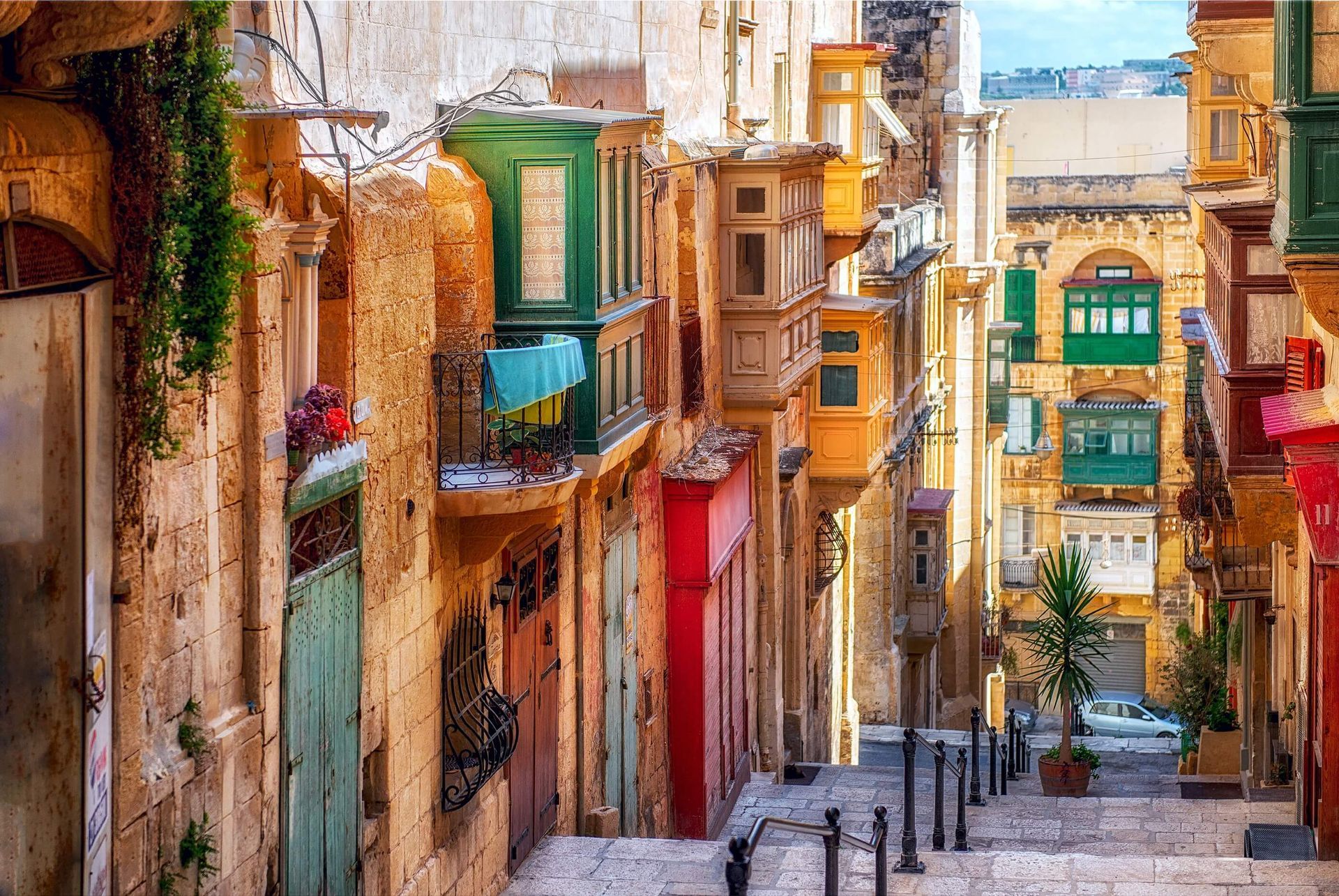Malta - Europe's Healthcare Hub for Medical Tourism and Education
Malta has set its sights on becoming a European healthcare hub, by inviting private investors to make the island a health tourism capital.
As a former British colony and an active Commonwealth member country, Malta continues to hold deep and historic links to the UK, at multiple levels. The island is completely bilingual with both English and Maltese holding official status. It also enjoys excellent communication links to Europe. Despite its small size, Malta has a rich history as a healthcare power. From opening its first public hospital back in 1327, to providing healthcare to troops during World War 1, it is little surprise that the country is known as ‘The Nurse of the Mediterranean’.
War Time Healthcare
Geopolitical developments in Europe and the Mediterranean region often placed Malta in the midst of all activity. Ripple effects from battles fought on other shores soon reached Malta, sometimes vehemently; other times in the form of shiploads of wounded soldiers seeking respite and recovery from the pain of war. The Battle of Gallipoli in 1915 transformed Malta into an island hospital. In the space of a year, Malta went from having four military hospitals to over 30 medical establishments caring for over 136,000 wounded soldiers.
Development of the Maltese Health System
The World Health Organisation (WHO) ranks Malta fifth in the world in terms of health system performance with a healthcare expenditure of just under 10% of GDP.
Malta has the highest population density in Europe and has experienced significant population growth in recent years that also led to developments in health care provision. Current life expectancy stands at 79.6 years for men and 83.3 years for women, with expectations for further increase. This, coupled with a low birth rate, means that Malta’s population is rapidly ageing. Chronic conditions associated with obesity, unhealthy lifestyles and age-associated frailty are the health sector’s major challenges.
The Ministry for Health is responsible for the provision of health services, regulations and standards, and the provision of occupational health and safety. The public health care system remains the key provider of health services, with a strong private sector complementing it, particularly for elective procedures.
.
Recent years have seen a move towards the introduction of private-public partnerships within a number of hospitals and primary health care services. The Roman Catholic Church plays an important role in healthcare, specifically in the provision of nursing homes for the elderly, homes for people with a disability, and for those with mental disorders.
Several associations have been set up for health professional groups. These include the
- Malta Union of Midwives and Nurses
- Medical Association of Malta
- Dental Association of Malta
- Malta Chamber of Pharmacists
- Malta Association of Physiotherapists
- Malta College of Family Doctors
Public health strategies are built on projected population needs based on available epidemiological information. However, service planning is limited by available financing as well as human resources. To address the latter insufficiency, particularly in terms of nurse-availability, foreign recruitment is often undertaken.
To combat the demands that come with an ageing population, the Maltese Government has introduced policies aimed at attracting private investors. A major part of this has been the establishment of new partnerships with international healthcare providers and some of the world’s most highly regarded medical schools. Malta is poised to invest in world class technology and talent to cement its position as a hub for health tourism. This small island nation is strategically located between Europe, Africa and Asia, just south of Italy, north of Libya and west of Turkey.
Medical Tourism
Vitals Global (VG) was one of the first healthcare companies to enter the Maltese market investing €220m in two Maltese hospitals and one in the nearby island of Gozo, aimed at attracting medical tourists from throughout Europe. After two years the Maltese arm of VG was bought out by Texas based Steward Health Care, who have continued to develop facilities in the country.
Saint James Hospital Group is the largest of the local Maltese private healthcare companies. A family owned and operated business, it has four hospitals and clinics on the island providing medical, surgical, orthopaedic and ophthalmology services plus 24/7 emergency and urgent care. A new director was appointed to expand oncology services.
Aesthetic medicine including cosmetic dermatology and surgery has been a strong component of the healthcare sector but its viability has come under threat by the actions of the inland revenue.
Medical Education
Medical tourism is not the only healthcare focus of the Government of Malta. The country is also committed to investing in the next generation of doctors, nurses and allied health professionals by providing premier educational facilities. A brand new medical school in Gozo opened its doors in September 2017, run by Barts and The London School of Medicine and Dentistry, whilst the Royal College of Surgeons of Ireland made Malta a centre for examinations.
Queen Mary Campus in Malta
Queen Mary Campus Malta is the campus of Queen Mary, University of London, the parent organisation of the Barts and London School of Medicine. It is the first medical school on the small island of Gozo. The building of the Queen Mary, Malta Campus was managed by Steward Healthcare and completed in October 2019. Staff and students moved from the college's former home of two years at the Sir M.A. Refalo 6th Form College into the new Queen Mary, Malta campus on 26 October 2019. The state-of-the-art campus is situated on the grounds of Gozo General Hospital and features access to a 21st century Anatomy Centre.
Gozo General Hospital is a public sector 302-bed hospital equipped with an emergency service and connected with hospitals on mainland Malta with an air ambulance service which is based in Gozo. It is the only hospital on the island of Gozo, providing both inpatient and outpatient medical and surgical services.
The medical school provides a London University medical degree from its Malta campus.
Working Conditions in Malta
The working conditions and the costs of living in Malta are in general similar to or cheaper than those of mainland Europe with salaries and taxation rates roughly comparable. It should be noted that employers do not pay relocation expenses or provide accommodation so prospective employees should be prepared to find accommodation which, fortunately, is readily available across the island. Travel is inexpensive across the islands of Malta and Gozo.
Employment contracts are usually of two years duration and there are penalties for leaving early without finishing one's job contract. There is a clause in Maltese employment law which allows an employer to demand 50% of the salary which would have been paid to the employee for the balance of the contract should the employee leave early without good reason. Paid holiday entitlement is 30 days per year and there are additional public holidays. Most employers can sponsor visas for non EU or UK passport holders.
Jobs Available In Malta
Malta has a strong demand for the following healthcare professions:
- resident medical officers
- emergency medicine physicians
- registered nurses and midwives
- operating department practitioners
- medical device specialists (sales positions)
Requirements to work in Malta
Candidates who hold citizenship of the UK, Ireland and the countries of the European Union have the right to live and work in Malta. Medical, nursing and allied healthcare professional qualifications from these countries are recognised in Malta via reciprocal agreements.
Basic Requirements include:
- English language fluency (Maltese fluency is not required although it is an official and the most widely spoken language)
- Professional qualification
- Professional licence (candidates working in medical device and pharmaceutical sales do not need an active professional registration or licence to practice)
Candidates interested in working in Malta's medical sector are invited to register a CV and contact us to discuss opportunities. Advertised jobs can be viewed on our website and applications made by uploading a recent CV which should address all required credentials and competencies as detailed in the job advert.
Read about a theatre nurse's experience working in Malta.
Share this post on Social Media
Leave a Comment
SEARCH JOBS
Ready for a change? Whether you’re looking for higher compensation, greater autonomy, a better work-life balance, or just a change in scenery, we have job opportunities in wonderful locations across the world. Start your medical or dental job search today and embark on your next career move.
SIGN UP FOR JOB ALERTS
We believe everyone deserves to find their dream job. Be the first to hear about new practice opportunities in exciting locations across the world Simply sign up for job alerts in your chosen field, and we will email you when a new job in your specialty becomes available.
More Insights












